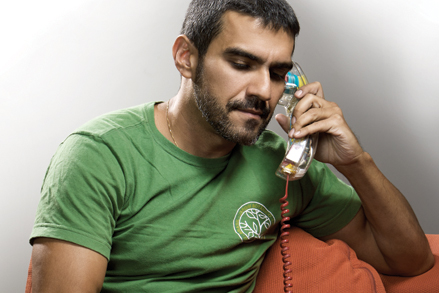
Getting Support
Many positive men and many of their negative partners have found that talking with others is a great way of getting support. The secret is finding the right support for you.
In this section we review some support options, and in our Contacts section you will find details of community-based HIV organisations in your State or Territory. Community-based HIV organisations offer a range of support services, and will be able to refer you to other specialised support services.
Friends and Family
Many of us find that those closest to us are the most useful and supportive people to talk with about personal issues. But keep in mind that if you disclose they may need time to come to terms with the information. Often, the closer someone is to us, the more affected they will be by our news. You may find yourself supporting them for a while. Also, you may need to consider that your friends and family are not bound by confidentiality and may find the need to talk about your status with others.
Other People In The Same Situation
Peers are often the best people to talk to because they have a personal understanding. Look around you for positive friends or their negative partners. AIDS councils or PLHIV organisations usually have peer workers who can talk to you or guide you into support groups.
Counsellors
Many gay men with HIV have found counsellors very useful. Most HIV or sexual health services can refer you to specialised counsellors. You may need to shop around to find a counsellor that meets your needs. Counselling can be short-term and deal with a particular problem, or can be ongoing and deal with a number of issues.
Healthcare Practitioners
Good health care practitioners can be a significant source of support for gay men with HIV. Your doctor should be able to give you information about having sex when you are HIV positive.
Services For Other Particular Needs
There are specific services for areas like community care, mental health, drug use issues, and financial support and so on. Many people with HIV have found these very useful. A good social worker or your local AIDS Council should be able to tell you how to access these services if you need them.


